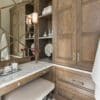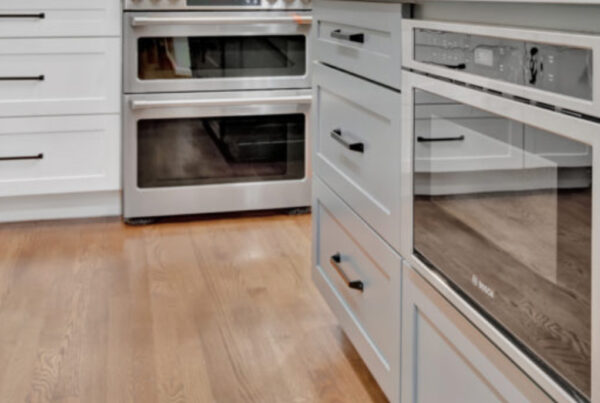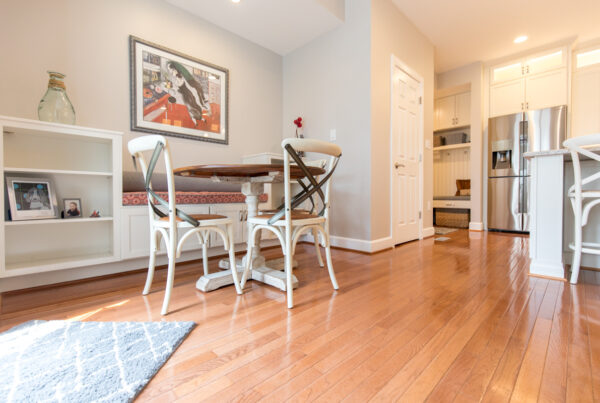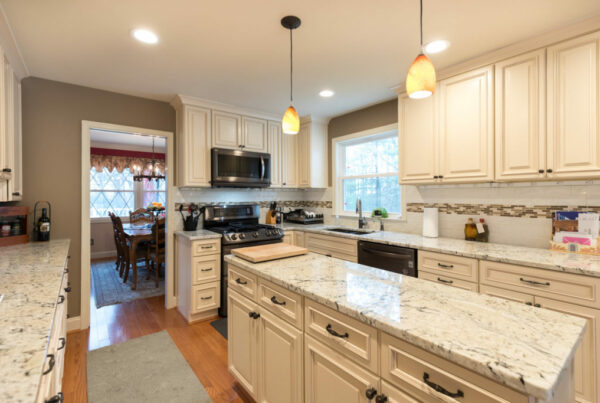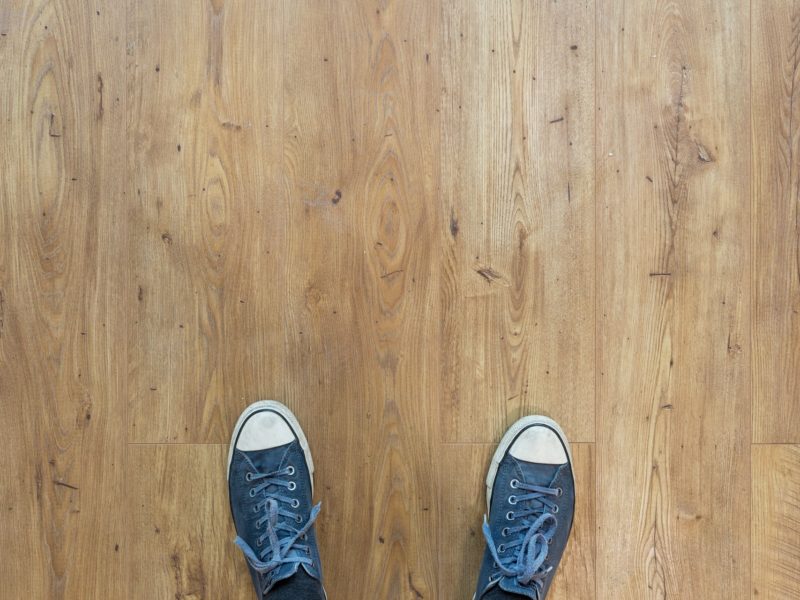
Basement flooring options are much different than other kinds of conventional flooring for your basement kitchen or living room. It can potentially leach residual moisture even during dry weather. That is mostly because it perpetually remains in close contact with the ground. Water also has several other options to seep into your basement, especially during rains.
As you can see, moisture is the prime concern when it comes to basement flooring. This is what insurance companies across the globe thrive upon. Here we will cover the best basement flooring options presently available in the market. You can then choose an apt one to protect your floor from moisture and dry it out if it gets affected.
Sheet Vinyl Flooring
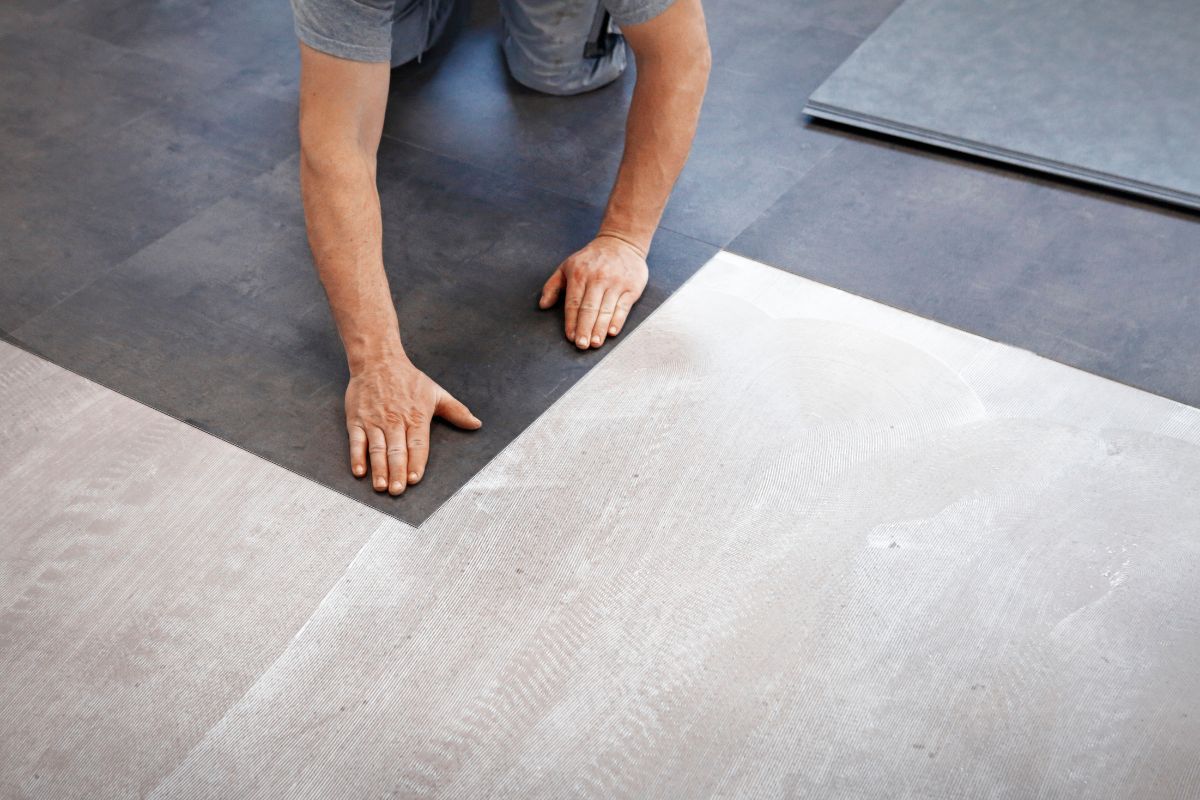
Also called resilient flooring, vinyl flooring is one of the best basement flooring options that you can consider while remodeling. It is available in the form of planks, tiles, and sheets. Of these, sheet vinyl flooring creates a smooth and waterproof surface. It is ideal for places that are especially prone to water. On the other hand, tile vinyl flooring possesses multiple seams that are more vulnerable to accumulating moisture.
Sheet vinyl flooring is also relatively cost-effective and warmer to touch, compared to concrete and ceramic tiles. However, it is also quite difficult to install by yourself. It also requires a relatively clean surface for adhesion. Many people consider it a relatively cheap fix.
Ceramic or Porcelain Tile Flooring
Tile is one of the most versatile basement flooring options when you’re remodeling your basement. Unlike concrete, it acts as a properly finished surface. At the same time, it possesses plenty of unique virtues of its own. You do not need to invest in any kind of additional treatment, unlike concrete. In fact, you can install porcelain or ceramic tile right on top of a concrete slab.
Keep in mind that tile on concrete can be cold to touch. Therefore, it is a good idea to install radiant heating between the tile and concrete slab. Further, radiant heating will comfortably warm up the tile surface.
You can even do the tile flooring as a DIY project, as it is immune to rot and is resistant to any flooding. However, you may need professional assistance in order to install tile in larger areas. You will have to invest in radiant heating if you face problems regarding temperature.
Engineered Wood Flooring
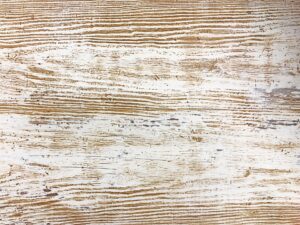
As common sense suggests, organic material like wood is quite vulnerable to moisture. Therefore, you should not even think of including solid hardwood among your basement flooring options. However, that is not the case with engineered wood. It is admirably durable by virtue of its cross-hatched plywood base under the actual wood veneer. That allows it to retain its shape when you expose it to mild amounts of moisture.
Engineered wood flooring possesses excellent sound absorption properties. It also boasts of a truly regal look among all basement flooring options. However, it is also relatively expensive. In case engineered hardwood is damaged by water and stapled to the subfloor, it isn’t easy to repair.
Luxury Vinyl Plank or Tile
Compared to other basement flooring options, luxury vinyl flooring is one of the more recent choices. Unlike conventional flooring options, it is not joined to the subfloor using adhesives. Instead, every piece is joined individually in a floating floor manner. As an additional benefit, it closely resembles materials it mimics, such as stone or wood.
Luxury vinyl resembling wood is available in the form of thick planks. It can be beautifully embossed to obtain a texture that looks very much like actual wood grain. Luxury vinyl tile resembling stone can have a texture like marble, slate, travertine, and other natural stones. These tiles are remarkably durable and, owing to their thickness, relatively warmer.
Unfortunately, luxury tiles tend to have abysmal resale values since some buyers consider them as inferior materials. During floods, similar to seamed floor coverings, moisture can seep down luxury vinyl tiles to the subfloor. These tiles are also relatively expensive.
Concrete Flooring
Utilitarian surfaces were once frowned upon by customers. However, they are being accepted more widely now. The good news is that you do not necessarily have to keep concrete in a raw state. You can stain or paint it to give it a new and stylish look. You can also use paint to cover up patches upon it.
Concrete, among basement flooring options, is the most moisture-resistant material available. It also does not require any subfloor, which makes the basement remodeling process easier. However, since you cannot heat it from below, it can also be uncomfortably cold during winter. On top of that, it also requires extensive labor to install and maintain.
Plank Tile Flooring
Porcelain basement flooring in the form of planks is immune to moisture. Its impeccably crafted textures can make it look unmistakably like actual wood. It is one of the most durable basement flooring options available in the market. Unlike conventional tiles, however, its edges are rectified. As a result, the tiles are arranged edge-to-edge without any mortared grout lines.
Porcelain plank floor tiling is being considered a status symbol over time. Thus, it now possesses significant resale value for new remodeling projects. It is waterproof and easy on the eyes. However, it is rather cold underfoot like all other ceramic tiles. Also, it is one of the more expensive basement flooring options.
Laminate Flooring
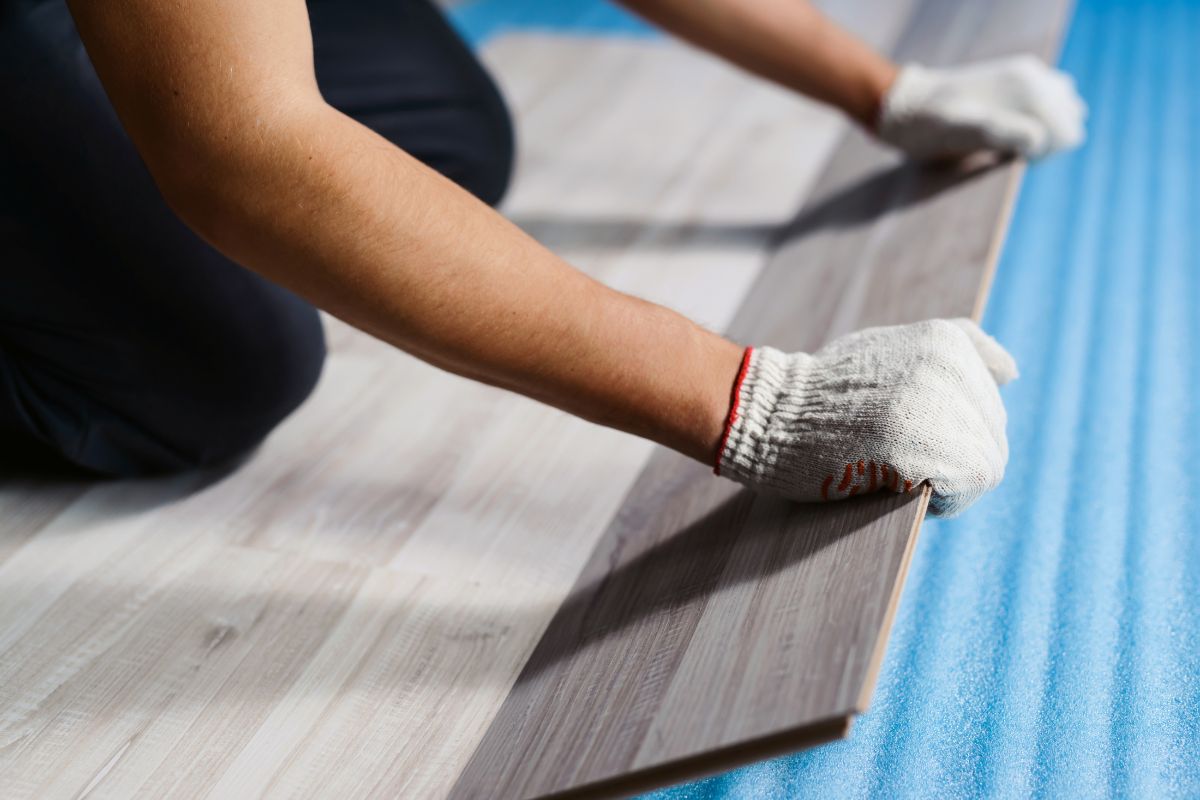
Courtesy of better image layer graphics and thicker surfaces for deeper embossing, laminate basement flooring is in high demand. However, it is also quite vulnerable to moisture. If its base material comes into contact with water, it gets swollen up permanently.
You cannot restore it to its normal size by drying. As a result, the layers and top areas start to peel off. If your laminate flooring gets damaged to this extent, your only option is to replace it altogether.
Waterproof laminate possesses no wood as part of its contents. As a result, it does not get swollen or distended. Despite that, it is not very popular among buyers as of now. You will have a rather hard time trying to buy it in North America, with only a selected few design options. Fortunately, you can easily install laminate yourself.
